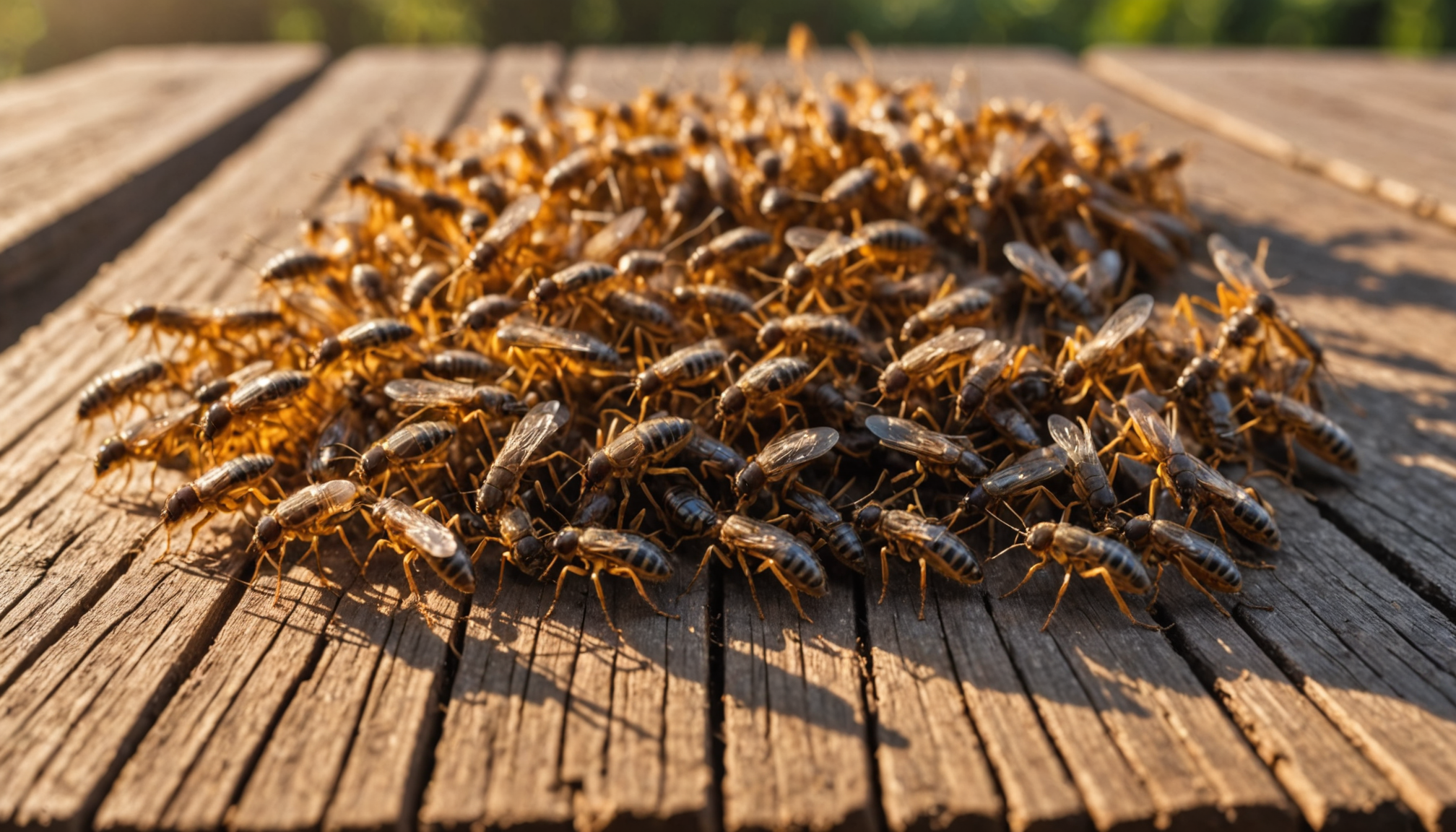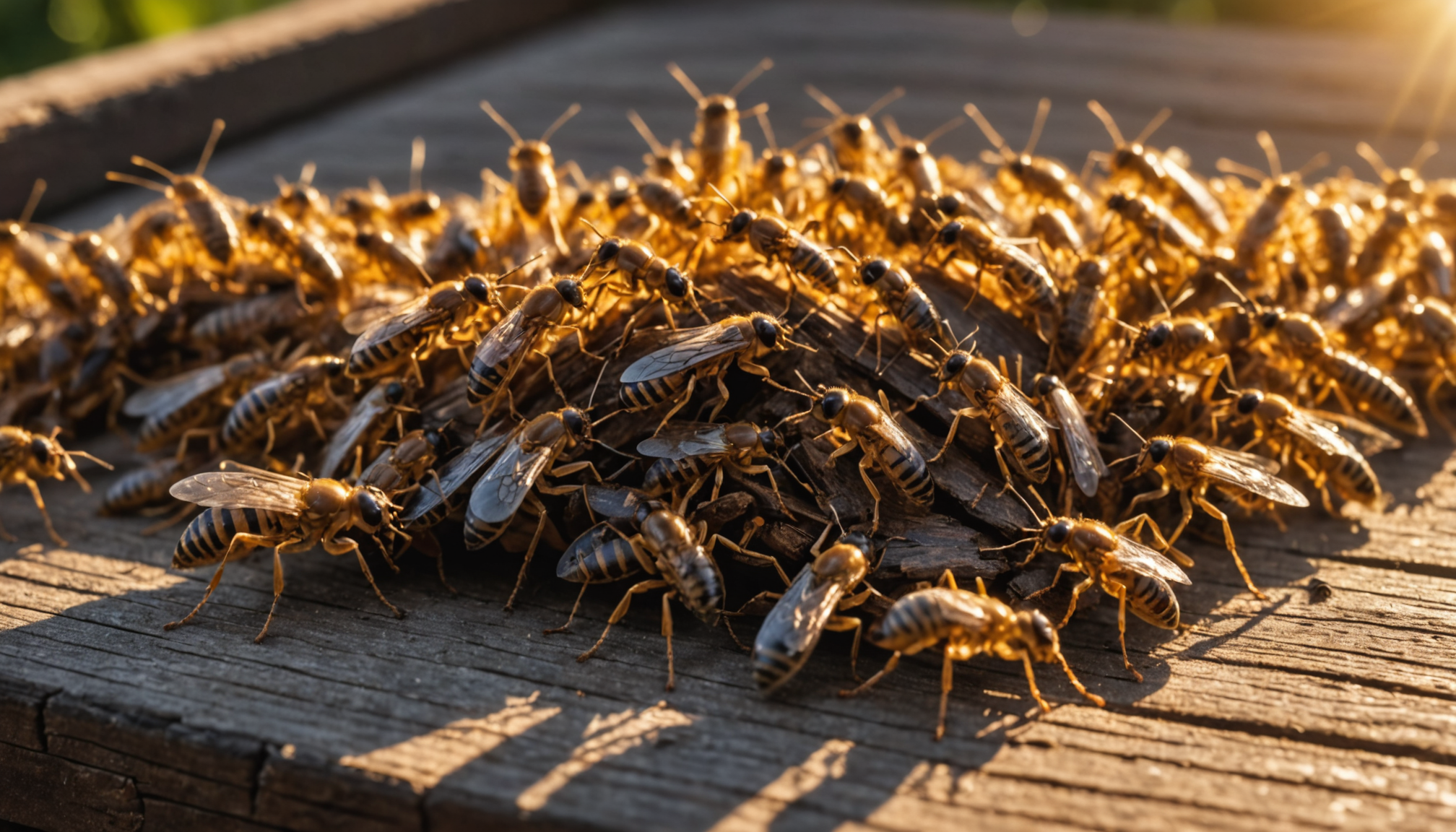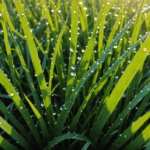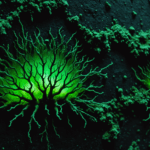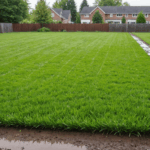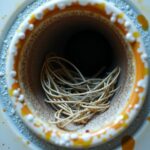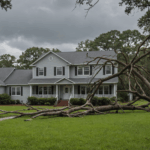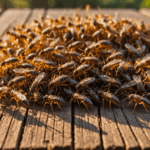In Jacksonville’s humid subtropical climate, termite swarms typically emerge between March and May, when temperatures consistently reach above 70°F and following periods of rainfall. According to the University of Florida’s Department of Entomology, these conditions create the perfect environment for termite colonies to release their reproductive swarmers, known as alates.
During these seasonal swarms, thousands of winged termites simultaneously emerge from their colonies in search of mates and new nesting sites. Dr. Sarah Thompson, a leading pest control expert at the Florida Pest Management Association, notes that a single mature colony can release up to 60,000 swarmers in just a few days. These swarms most commonly occur during warm, humid mornings or early afternoons.
Different termite species in Jacksonville exhibit varying swarming patterns. Subterranean termites, the most destructive species in Northeast Florida, typically swarm during spring daylight hours. In contrast, Formosan termites, an aggressive invasive species, usually swarm at night between April and July. The Florida Department of Agriculture reports that these two species alone cause an estimated $1.5 billion in structural damage annually across the state.
- Native subterranean termites swarm: March to May
- Formosan termites swarm: April to July
- Drywood termites swarm: Late spring to early summer
Understanding these swarming patterns is crucial for Jacksonville homeowners because swarmers are often the first visible sign of a nearby termite colony. Research from the National Pest Management Association indicates that 38% of homes in the Southeast United States are at high risk for termite infestation, with swarm season representing the peak period for new colony establishment.
Environmental factors such as soil moisture, temperature, and light intensity play significant roles in triggering termite swarms. Jacksonville’s average spring rainfall of 3.5 inches per month creates ideal conditions for termite activity. Pest control experts recommend that homeowners be particularly vigilant during these periods, as swarmers can quickly establish new colonies within 50 feet of their original nest.
Signs of termite activity
Identifying early warning signs of termite presence can help Jacksonville residents prevent extensive structural damage and costly repairs. These silent destroyers often work undetected for months or even years before visible damage becomes apparent. The most obvious indicator is the presence of swarmers or their discarded wings near windows, doors, and light fixtures, particularly during spring months.
Mud tubes, which are pencil-width tunnels constructed by termites for travel and protection, frequently appear on foundation walls, support beams, and other structural elements. These tubes serve as protected pathways between the colony and food sources. Jacksonville’s high humidity levels make these mud tubes more prevalent and easier to spot than in drier climates.
Wood damage often manifests as hollow-sounding timber when tapped, as termites consume wood from the inside out. Pest control experts in Jacksonville emphasize that damaged wood may appear blistered or darkened, and when probed with a screwdriver, can feel soft or break easily. Paint bubbling or peeling on wooden surfaces can also indicate moisture problems associated with termite activity.
Another telltale sign is the presence of frass – termite droppings that resemble small, wooden pellets. These are commonly found near kick-out holes, which drywood termites create to remove waste from their colonies. In Jacksonville’s climate, these signs may be more visible during periods of high humidity when termites are most active.
- Check window frames and door frames monthly for signs of mud tubes or wood damage
- Inspect attic spaces and crawl spaces quarterly for evidence of termite activity
- Look for piles of discarded wings near light sources during swarm season
- Monitor wooden structures for hollow sounds or surface irregularities
Clicking or rustling sounds within walls can indicate an active infestation, as soldier termites often create these noises by banging their heads against wood surfaces to signal danger to the colony. Local pest control professionals report that these sounds are most noticeable during quiet nighttime hours when termites are typically most active.
Preventive maintenance steps
Maintaining a consistent prevention routine is crucial, but many Jacksonville homeowners make common mistakes that can inadvertently attract termites or make their properties more vulnerable to infestation. One frequent oversight is allowing mulch to accumulate against the house foundation – experts recommend maintaining at least a 6-inch gap between mulch and exterior walls to reduce moisture and prevent easy termite access.
Improper drainage management is another critical error. Homeowners often forget to clean and maintain gutters regularly, leading to water accumulation near the foundation. Pest control specialists advise checking gutters monthly during Jacksonville’s rainy season and ensuring downspouts direct water at least 3 feet away from the house.
Wood storage practices can significantly impact termite prevention. Many residents unknowingly stack firewood directly against their homes or leave lumber lying on the ground. Instead, wood should be stored at least 20 feet from the structure and elevated on concrete blocks to prevent direct soil contact.
Vegetation management is frequently overlooked. Dense shrubs and climbing vines against house walls create moisture-rich environments that termites love. Regular trimming to maintain at least a 12-inch clearance between plants and walls is essential for effective prevention.
- Inspect and repair leaky pipes and faucets immediately
- Remove dead tree stumps and roots within 50 feet of structures
- Keep wooden siding at least 6 inches above soil level
- Ensure proper ventilation in crawl spaces and attics
Many homeowners also make the mistake of attempting DIY termite treatments without proper knowledge or equipment. These efforts often prove ineffective and can mask signs of infestation that professional pest control experts would otherwise detect. Regular professional inspections remain the most reliable prevention method for Jacksonville residents.
Another common error is ignoring small cracks in the foundation or gaps around utility entries. These seemingly minor openings can provide termites with direct access to wooden structures. All gaps larger than 1/16 inch should be sealed with appropriate materials designed for pest prevention.
Protecting your home’s foundation
A robust foundation defense system serves as your home’s first line of defense against termite invasions in Jacksonville’s challenging climate. Start by ensuring proper grading around your home’s perimeter – the soil should slope away from the foundation at a rate of 6 inches for every 10 feet to prevent water accumulation. This fundamental step significantly reduces moisture levels that attract termites.
Install a high-quality termite barrier system that extends at least 6 inches above ground level and 8 inches below the soil surface. These physical barriers, when properly maintained, can effectively block termite entry points and protect your foundation’s integrity. Many pest control experts in Jacksonville recommend stainless steel mesh or termite-resistant membranes for optimal protection.
Monitor and maintain your foundation’s waterproofing system regularly. This includes:
– Applying waterproof sealants to concrete surfaces
– Installing proper drainage systems around the foundation
– Maintaining foundation vents to ensure adequate airflow
– Repairing any cracks or gaps promptly with appropriate materials
– Installing termite-resistant foam insulation where necessary
Pay special attention to areas where utilities enter your home, as these spots often become vulnerable entry points for termites. Seal these areas with appropriate materials such as copper mesh or expandable foam designed specifically for pest prevention. Regular inspection of these entry points should become part of your routine maintenance schedule.
Consider installing a foundation drainage system that includes:
- French drains to redirect groundwater
- Sump pumps in areas prone to flooding
- Properly graded landscaping that channels water away
- Adequate gutter extensions (minimum 6 feet from foundation)
Remember to maintain proper soil conditions around your foundation. The moisture content should be consistent but not excessive. Install moisture meters at key points around your foundation to monitor levels regularly. Keep irrigation systems at least 12 inches away from the foundation walls to prevent water accumulation.
For enhanced protection, consider incorporating termite-resistant materials during any foundation repairs or modifications. Modern solutions include treated wood products, concrete additives, and specialized sealants designed to deter termite activity. These investments may seem substantial initially, but they provide long-term protection against costly termite damage.
By implementing these protective measures, you’re not just defending against termites – you’re safeguarding your home’s structural integrity and your investment’s value. Stay proactive and consistent with your foundation protection efforts, as prevention is far more cost-effective than dealing with extensive termite damage later.
Professional inspection and treatment options
- How often should I get my Jacksonville home inspected for termites?
- Professional pest control experts recommend annual termite inspections for homes in Jacksonville due to the city’s high-risk status. More frequent inspections may be necessary if your property has a history of termite activity or is located in a particularly vulnerable area.
- What’s the average cost of professional termite treatment in Jacksonville?
- Treatment costs typically range from $1,200 to $2,500 for initial treatment, depending on your home’s size and the infestation’s severity. Many pest control companies offer annual protection plans starting around $300-500 per year, which include regular inspections and warranty coverage.
- How long does professional termite treatment last?
- Most liquid termite treatments remain effective for 5-10 years, while bait systems require ongoing monitoring and maintenance. The longevity of treatment depends on environmental factors, prevention measures, and the type of treatment used.
- Should I treat my home myself or hire a professional?
- Professional treatment is strongly recommended over DIY methods for effective termite control in Jacksonville. Licensed pest control operators have access to commercial-grade products, specialized equipment, and extensive training that ensures proper application and maximum effectiveness.
- What types of professional termite treatments are available in Jacksonville?
- The main treatment options include liquid termiticides, bait systems, and fumigation for drywood termites. Your pest control professional will recommend the most appropriate treatment based on the termite species present, infestation level, and your home’s construction type.
